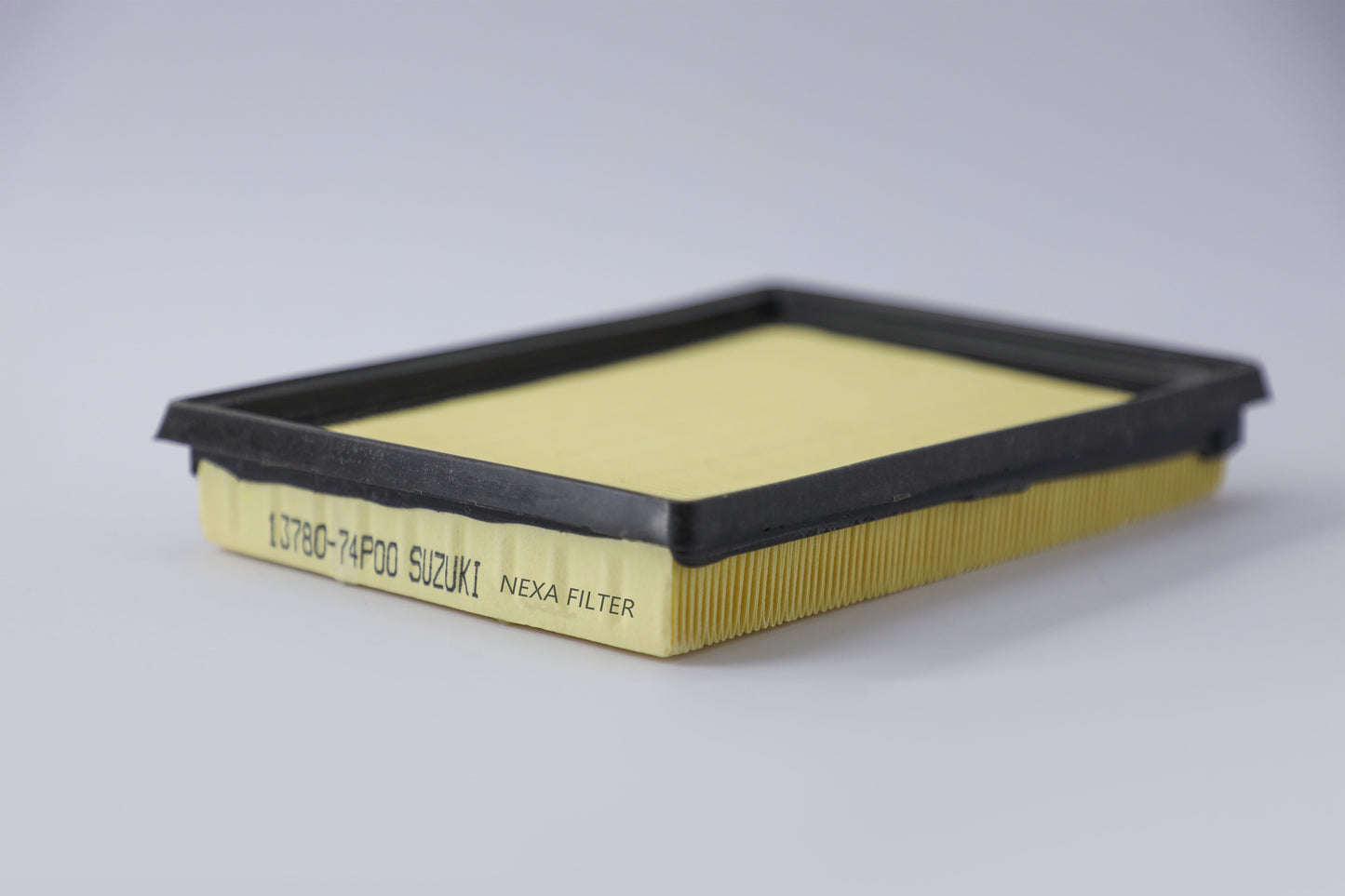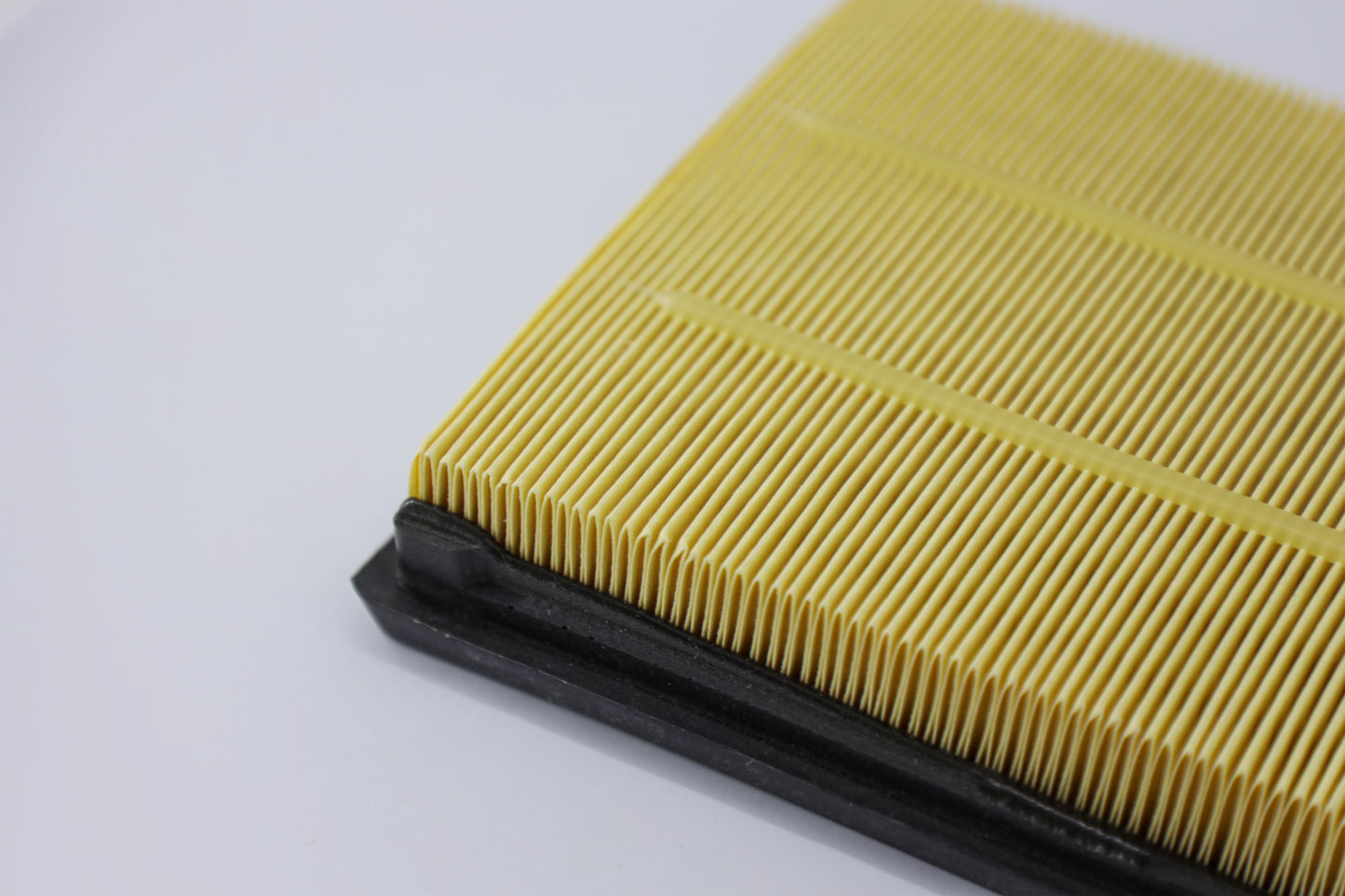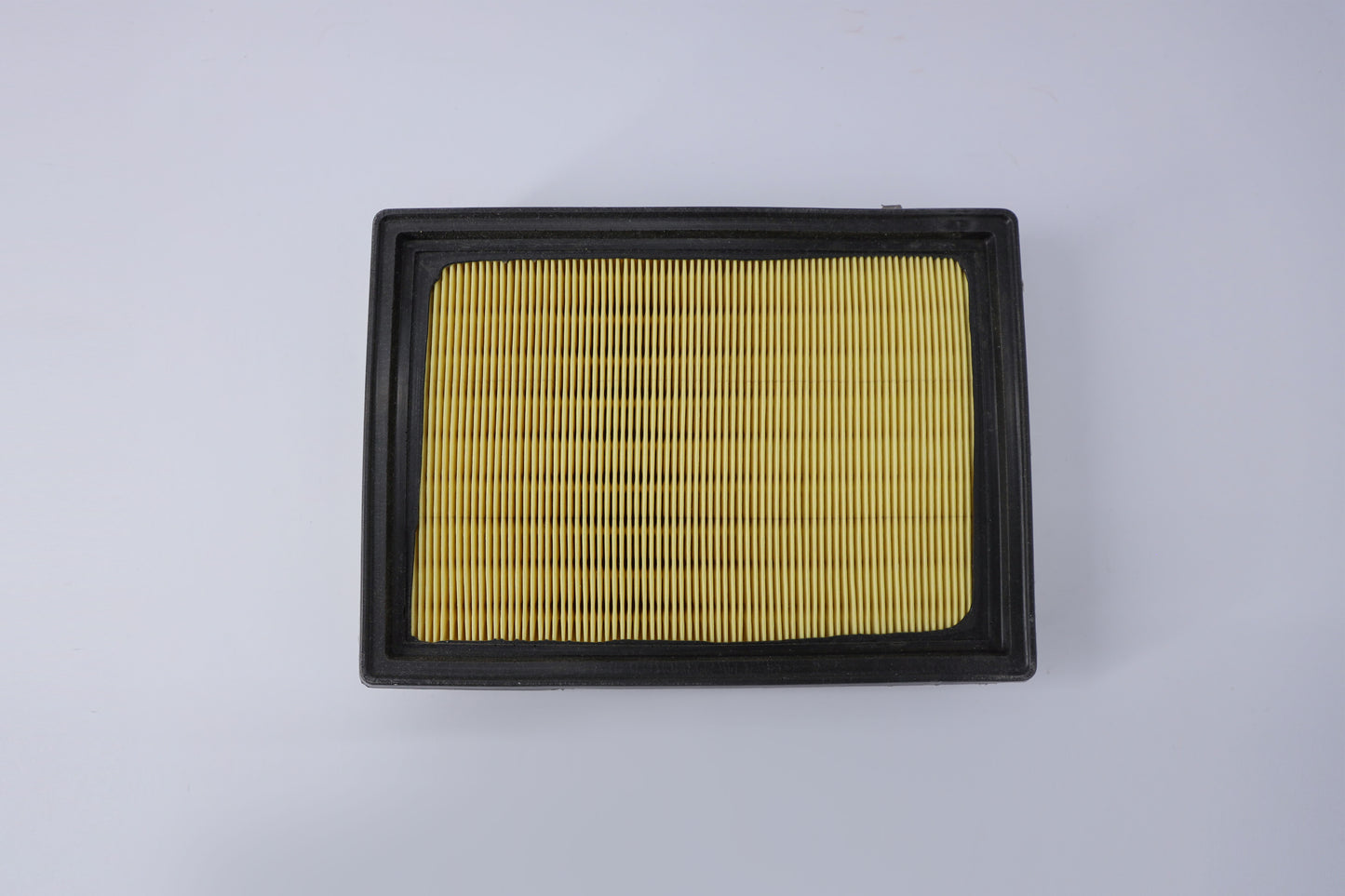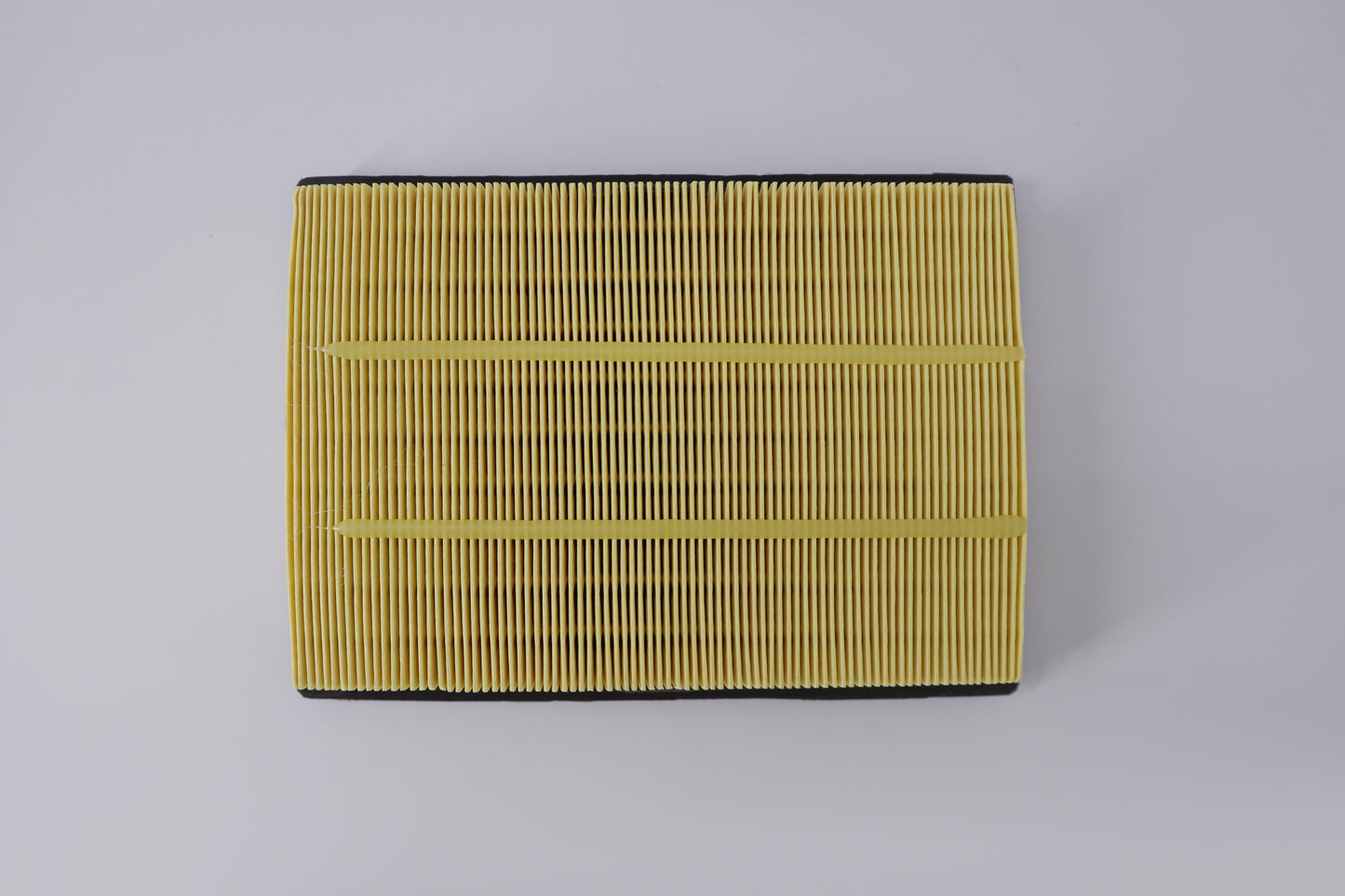My Store
AIR FILTER SUZUKI ALTO
AIR FILTER SUZUKI ALTO
Couldn't load pickup availability
13780-74P00
The air filter in the Suzuki Alto is an essential component for maintaining optimal engine performance and efficiency. It serves as a barrier, filtering out contaminants and debris from the air before it enters the engine for combustion. The air filter ensures that only clean, filtered air reaches the engine, which is crucial for maintaining smooth operation and avoiding potential damage to internal engine components.
Key Functions of the Air Filter in Suzuki Alto:
-
Filtration of Air:
- The primary function of the air filter is to trap dust, dirt, debris, pollen, and other airborne particles from the air that enters the engine. This is crucial because, without filtration, these particles could enter the engine and cause wear and tear on sensitive components like the pistons, cylinders, and valves. Over time, these contaminants could damage the engine or reduce its lifespan.
-
Ensures Proper Air-Fuel Mixture:
- For an engine to run efficiently, the right amount of air and fuel must mix properly. A clean air filter ensures that the engine gets an optimal flow of clean air, which is necessary for proper fuel combustion. If the filter is clogged, the engine might not receive the correct amount of air, which can lead to poor fuel efficiency, reduced power, and overall performance issues.
-
Prevents Engine Damage:
- Without an air filter, debris and dirt can directly enter the engine’s intake system and cause abrasive damage to the internal engine components. This can lead to serious engine issues, such as poor lubrication, reduced compression, or even permanent damage. The air filter serves as a safeguard, preventing such damage by removing harmful particles before they reach the engine.
-
Improves Fuel Efficiency:
- A clean air filter contributes to better airflow and optimal engine performance. When the engine has a proper air-to-fuel ratio, it operates more efficiently, leading to better fuel economy. A clogged or dirty filter reduces airflow, making the engine work harder and leading to an increase in fuel consumption.
-
Reduces Emissions:
- By ensuring proper combustion, a clean air filter helps reduce the amount of unburned fuel in the exhaust, which leads to lower emissions. This is important not just for the vehicle’s environmental impact, but also to ensure it meets emission standards and passes inspections.
Construction of the Air Filter:
The air filter is generally made from paper-based media, which is pleated to increase the surface area for capturing particles. This material is designed to trap dirt and debris while still allowing a sufficient amount of air to flow through to the engine. In some higher-performance filters, synthetic or cotton materials may be used, but for most standard filters in the Suzuki Alto, the paper-based material is typical.
Signs the Air Filter Needs Replacing:
-
Reduced Engine Power:
- If the air filter becomes clogged, the engine may struggle to get enough air, which can lead to reduced engine power, sluggish acceleration, and difficulty starting.
-
Increased Fuel Consumption:
- A clogged filter will force the engine to use more fuel in an attempt to compensate for the reduced airflow, resulting in decreased fuel efficiency.
-
Engine Misfires or Rough Idling:
- A dirty air filter can cause uneven air flow, leading to engine misfires, rough idling, or stalling.
-
Black Smoke from Exhaust:
- If the filter is dirty, the engine may not receive enough air for proper combustion, which can lead to incomplete combustion and black smoke from the exhaust.
-
Visible Dirt or Damage:
- If you inspect the air filter and notice visible dirt buildup or damage, it’s time for a replacement. An excessively dirty or torn filter can no longer function effectively.
Maintenance and Replacement:
-
The air filter should generally be replaced every 12,000 to 15,000 kilometers (or about once a year), depending on driving conditions. If you frequently drive in dusty or polluted areas, you may need to replace it more often. In some cases, if the filter looks clean and you drive in less demanding conditions, it might last longer.
-
Steps to replace the air filter:
- Locate the air filter housing, which is usually situated near the engine bay.
- Open the housing and remove the old air filter.
- Inspect the housing for dirt or debris and clean it if necessary.
- Place the new air filter in the housing, ensuring it fits snugly and securely.
- Close the housing and check the engine's performance to ensure proper airflow.
Benefits of Regularly Replacing the Air Filter:
-
Improved Engine Performance:
- By ensuring that clean, unimpeded airflow reaches the engine, the air filter helps the engine run more smoothly, increasing its responsiveness and overall performance.
-
Better Fuel Economy:
- A clean air filter ensures that the engine runs at optimal efficiency, which can help maintain or improve fuel economy.
-
Prevention of Engine Wear:
- Regular replacement of the air filter helps prevent the buildup of contaminants in the engine, thus reducing the chances of costly repairs due to internal engine damage.
-
Longer Engine Life:
- By maintaining a clean air supply to the engine, the filter helps reduce the strain on engine components, contributing to longer engine life.
Conclusion:
The air filter in the Suzuki Alto plays a critical role in ensuring the engine runs efficiently and remains protected from harmful contaminants. Regular maintenance, including replacing the air filter at the recommended intervals, is essential for ensuring optimal engine performance, fuel efficiency, and reducing engine wear. By keeping the air entering the engine clean, the air filter helps prolong the engine's life and enhances the overall driving experience.
Share








